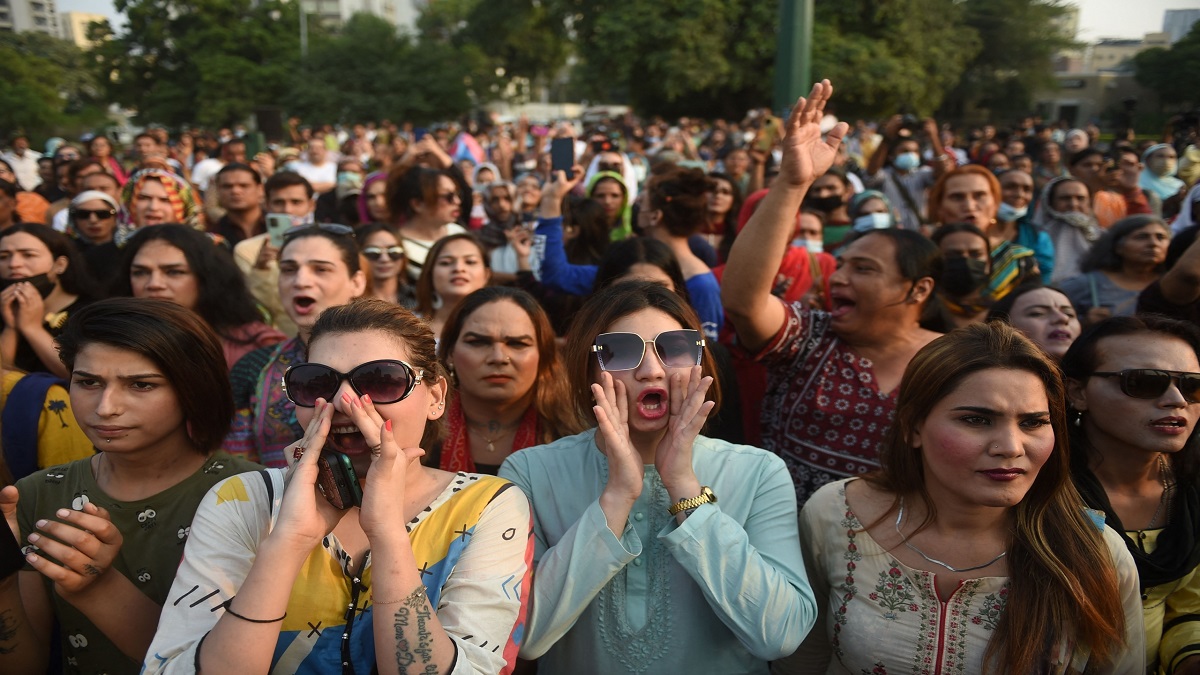The transgender community has expressed strong disapproval of the Federal Shariat Court’s (FSC) decision, labeling it an “assault on the rights of the transgender community by religious parties.” Amnesty International has also joined in criticizing the court’s ruling.
Nayab Ali, director of Transgender Rights Consultants Pakistan (TRCT), voiced her concerns during a press conference at the National Press Club (NPC) on Friday following the FSC’s decision to strike down several clauses of the Transgender Persons (Protection of Rights) Act, 2018.
Ali stated that the decision constituted an attack on the rights of the transgender community and an attempt to deprive them of their fundamental rights. She emphasized that no court should have the power to strip citizens of their basic human rights in Pakistan, asserting that the country belongs to transgender individuals just as much as it does to clerics and religious individuals.
Sara Imran, a successful transgender business person, asserted, “They should stop robbing us of our rights.” She emphasized that the transgender community has existed throughout history, but modern laws have been enacted to ensure their rights and security. Imran also highlighted the importance of advocating for the rights of animals, birds, and environmental protection.
Participants at the press conference announced their intention to file an appeal against the FSC’s decision, urging the federal and provincial governments to do the same, considering the widespread support from the public for the transgender community.
Meanwhile, Amnesty International called on the Pakistani government to reject any proposed amendments to the Transgender Act that violate international human rights laws and standards. The organization urged the government to prevent any amendments that would hinder transgender individuals from obtaining official documents reflecting their gender identity without imposing discriminatory requirements.
Read More: Transgender persons to be included in Benazir Kafalat Programme
Amnesty International stressed that denying essential rights to transgender and gender diverse individuals should not be guided by prejudice, fear, or discrimination. The organization also noted that some of the court’s observations were based on presumptions rather than empirical evidence.
Rehab Mahamoor, a research assistant at Amnesty International, emphasized that any attempts by the Pakistani government to deny transgender and gender-diverse people the right to gender identity contravene their obligations under international human rights law, including the International Covenant on Civil and Political Rights (ICCPR) and the Convention on the Elimination of All Forms of Discrimination against Women (CEDAW), to which Pakistan is a state party.
Amnesty International called on the Pakistani government to take immediate action to prevent the reversal of essential protections, as failure to do so would leave transgender and gender diverse people at an even higher risk of harassment, discrimination, and violence.



























